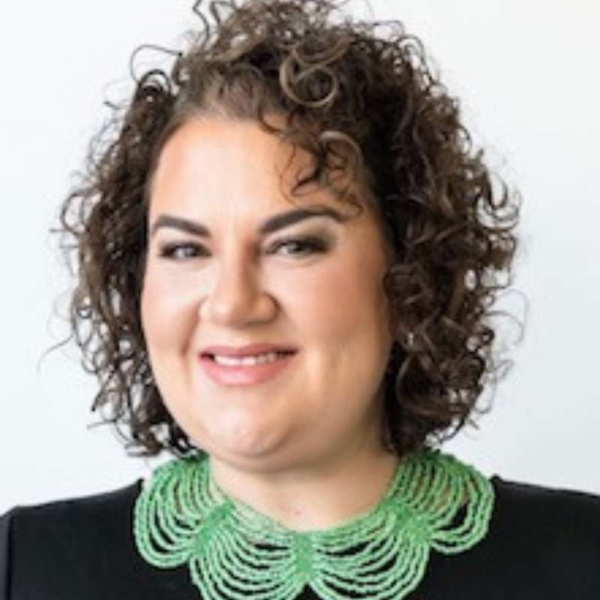Finding New Ways to Work
By Shawn Scott
I was diagnosed with IBC on February 21st, 2022—my 18th wedding anniversary. My symptoms began a few short weeks earlier and, like for many other IBC patients, they had been mistaken by multiple doctors for a skin irritation or infection. Fortunately, I was scheduled for my annual mammogram in early February, and a mass was discovered. On that wedding anniversary morning, I was at my desk at the estate planning law firm where I had worked for nearly twenty years helping counsel people through some of life’s toughest decisions and hardest moments.
A call came in from my doctor’s office. On the other end of the line was a nurse who told me the biopsy results were positive. I had cancer. In that moment I knew it was IBC based on my other symptoms. That was shortly confirmed by the results of a skin punch biopsy. If that mass wasn’t discovered, I hate to think of how much longer I might have gone without a diagnosis. My first thoughts were what I imagine many people have upon receiving this news including: WHAT?!, How can this be?, Am I going to die?!
I had counseled hundreds of people over the years on how to make important decisions such as choosing who will make their healthcare decisions for them if they could not make them for themselves, who will care for their children if they cannot, who will handle their finances if they become disabled or at death, and who will receive their assets when they die. As my thoughts continued to race, I quickly became thankful that I had worked through these hard, important decisions already. I had my estate plan in place and did not have to think about what would happen if I was severely disabled from this illness. I did not have to think about what would happen if I died. I did that work and that freed up space for me to turn toward thinking about my treatment, healing, and how to live through this difficult time.
Multiple rounds of chemotherapy, surgery, and radiation filled the next several months. About half-way through chemo I left work on a medical leave of absence. I didn’t know if or when I would be back. As many times as I had fantasized about being a lady of leisure, I didn’t want to be forced into it (not that there was much leisure to be had at that time)!
Thankfully, my treatment went well. I got through it the best I could. I’m certainly worse for the wear, but thankful for every single moment—good, bad, and indifferent. I (mostly) loved the time I had at home to heal, recover, and spend time with my husband, children, and family and friends. Slowly I got some energy back and started to wonder if I had too much time on my hands. My husband was at work, kids were at school, and I had seen every episode of every show. Nearly two years after I left on medical leave, I made the decision to go back to work.
The decision to go back to work was made, but then I had to consider what that would look like. I was still an estate planning attorney who enjoyed problem solving and helping my clients, but I was in many ways a completely different person than I was before my 18th wedding anniversary. Not only had I endured two more years with my husband (just kidding ;)), but my body was different, I had more reconstruction surgeries planned, I had neuropathy and fatigue, and I had loads of doctor’s appointments and therapies for physical and mental health. I also was acutely aware of the precious commodity of time. And lawyers’ work is the sale of their time.
Stepping back into my law practice wasn’t just about returning to work; it was about returning to the career that I had worked hard to build for most of my life and returning to help my clients that had come to rely on me for advice. Certainly my cancer experience directly correlated with my work of helping others plan for disability and death, but I think the reasons I went back and the lessons I’ve learned so far along the way apply more broadly.
Whether you make the decision to return to work to earn income, to build retirement benefits, to continue pursuing your professional dreams, to be appreciated for your skills and talents, or simply to stop feeling like you’re sitting around waiting for the other shoe to drop, the decision is a personal choice that only you can make and mold to fit your life. I want to share a few things that have helped me during this transition:
- Pace Yourself – Some days are harder than others, and that’s okay. It doesn’t matter how quickly you move, only that you’re headed in the direction you want to go.
- Lean on Your Support System – Whether it’s family, colleagues, or a network of fellow survivors, you’re not alone. People want to help you, and you must let them.
- Redefine Success – You don’t have to keep up with anyone else, including your pre-cancer diagnosis self.
- Listen to Your Body — To the extent possible, rest when you need rest and work when you have the energy. I sleep more than I did before and so sometimes that means I get in late and/or leave early. I don’t mind checking in on a weekend morning when I have energy to balance it all out.
- Keep Dreaming – Cancer can take a lot of things away, but it doesn’t have to take away your ambitions. If work is important to you, press on to keep building your professional life in the best way you can that serves you and honors where you are with your health journey.
Returning to work isn’t about “going back” to who I was before—it’s about embracing who I am now. I’m still navigating this journey, but I’m grateful to be here, doing what I love, and setting an example for my children that resilience and determination can carry us through life’s hardest moments.
For anyone facing a similar transition, know this: your path forward may look different, but it is still yours to shape.





